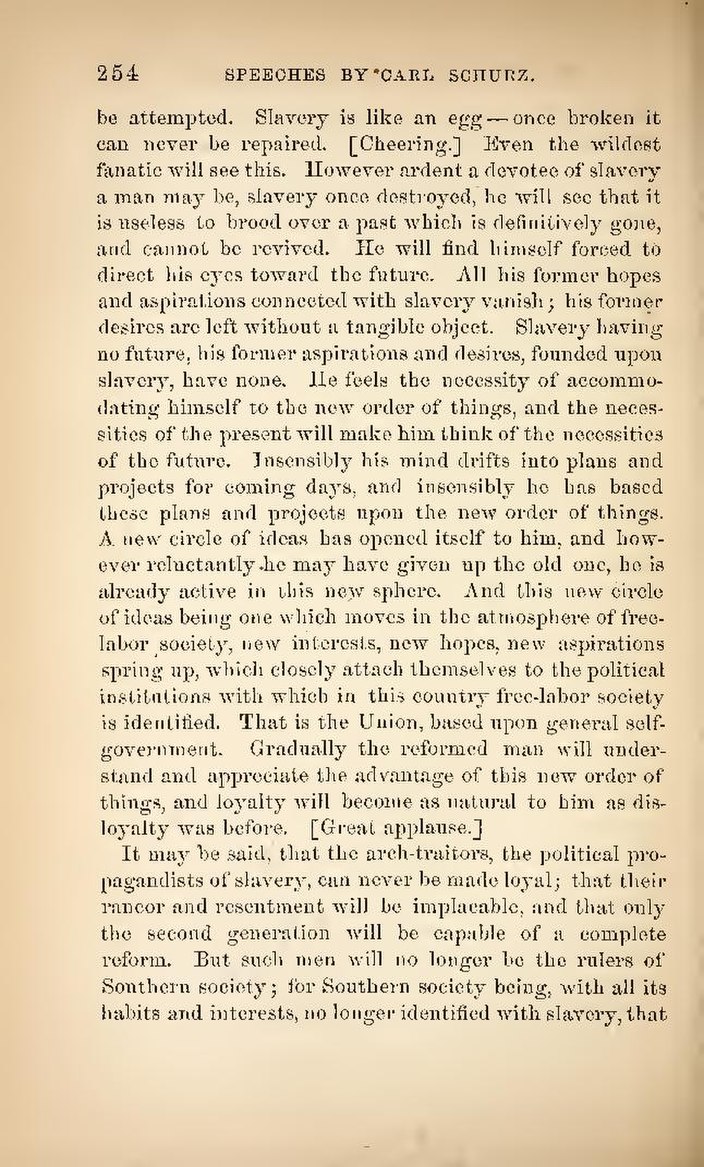be attempted. Slavery is like an egg—once broken it can never be repaired. [Cheering.] Even the wildest fanatic will see this. However ardent a devotee of slavery a man may be, slavery once destroyed, he will see that it is useless to brood over a past which is definitively gone, and cannot be revived. He will find himself forced to direct his eyes toward the future. All his former hopes and aspirations connected with slavery vanish; his former desires are left without a tangible object. Slavery having no future, his former aspirations and desires, founded upon slavery, have none. He feels the necessity of accommodating himself to the new order of things, and the necessities of the present will make him think of the necessities of the future. Insensibly his mind drifts into plans and projects for coming days, and insensibly he has based these plans and projects upon the new order of things. A new circle of ideas has opened itself to him, and however reluctantly he may have given up the old one, he is already active in this new sphere. And this new circle of ideas being one which moves in the atmosphere of free-labor society, new interests, new hopes, new aspirations spring up, which closely attach themselves to the political institutions with which in this country free-labor society is identified. That is the Union, based upon general self-government. Gradually the reformed man will understand and appreciate the advantage of this new order of things, and loyalty will become as natural to him as disloyalty was before. [Great applause.]
It may be said, that the arch-traitors, the political propagandists of slavery, can never be made loyal; that their rancor and resentment will be implacable, and that only the second generation will be capable of a complete reform. But such men will no longer be the rulers of Southern society; for Southern society being, with all its habits and interests, no longer identified with slavery, that
